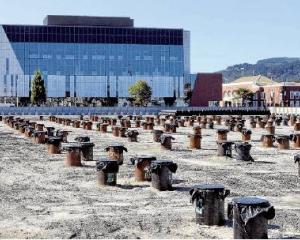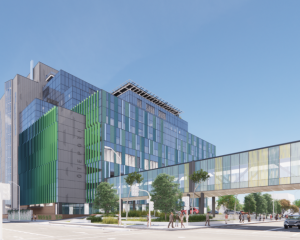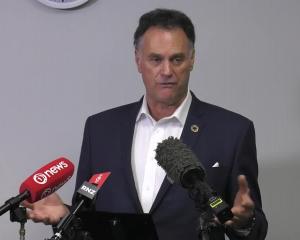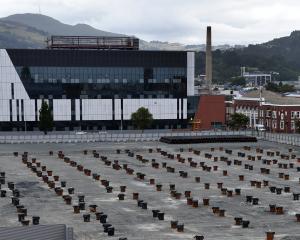
It comes as Health Minister Simeon Brown announced yesterday the $1.88 billion inpatients building will be completed at the former Cadbury’s site — last year, the government had raised the option of a retro-fit of the existing hospital.
University of Otago vice-chancellor Grant Robertson said he welcomed "the end to uncertainty that the announcement about the future of Dunedin Hospital provides to the community".
Mr Robertson remained focused on working through the detail of the proposal, but "the fact the government has agreed to continue building the hospital on the same site, including future proofing it for growth, is positive for the region and the university".
"We look forward to working with Mr Brown on the specific details that will support the university’s critical teaching and research role.
"The new hospital, integrated with the university’s medical school as part of a comprehensive health campus, is vital for ensuring high quality education and healthcare in New Zealand.
The hospital will remain a tertiary hospital, something that was rumoured at one point not to be the case.
This year, more than 600 new students will begin their training in Dunedin, including 312 medical students, 120 pharmacy students, 130 physiotherapy students and 40 medical laboratory sciences students.
"The hospital will play a key role in their education and in shaping the healthcare professionals of tomorrow.”
Otago Polytechnic executive director Dr Megan Pōtiki said confirmation of plans to build a modern tertiary hospital in central Dunedin would help strengthen the city's reputation as a destination for excellence in health education.
"Otago Polytechnic enjoys a strong relationship with Health New Zealand Te Whatu Ora, which provides critical clinical training and support for our high-calibre health students.
"Clinical placements for students in our nursing and midwifery programmes are a vital part of their training.
"This hands-on learning experience contributes to their work-readiness and professionalism, as we help cultivate New Zealand’s next generation of healthcare professionals."











